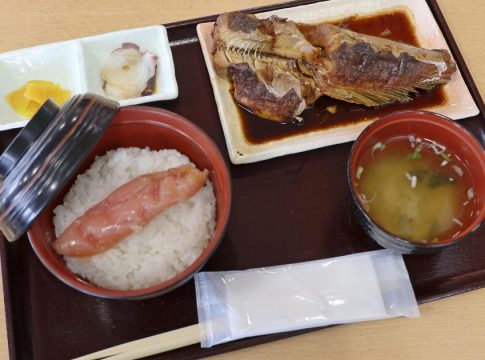The Power of a Japanese Diet on Mental Well-Being
A recent study from the Japan Institute for Health Security has opened up new avenues for understanding the relationship between diet and mental health. It reveals that individuals following a traditional Japanese-style diet, which includes staples like rice, miso soup, and fish, report lower levels of depressive symptoms than their counterparts.
What is a Japanese-Style Diet?
The traditional Japanese diet is rich in various food groups, including:
- Soy Products: Such as tofu and natto
- Vegetables: Cooked and in their fresh form
- Fish: Particularly oily varieties that offer beneficial omega-3 fatty acids
- Seaweed: A staple often found in soups and salads
- Green Tea: Known for its antioxidants
This research not only focused on the traditional diet but also considered a modified version that incorporates more fruits, fresh vegetables, and dairy.
Exploring Mental Health Benefits
While the impacts of diet on mental health are often discussed, there have been few studies surrounding the Japanese diet specifically. In contrast, the Mediterranean diet—comprising of vegetables, grains, olive oil, and fish—has been more extensively studied. The promising findings from this research suggest that what we eat genuinely affects our mood and mental well-being.
Key Findings:
- Among 12,499 employees surveyed, about 30.9% exhibited depressive symptoms.
- Those adhering to a Japanese diet showed a lower prevalence of such symptoms.
Understanding the Science
Research indicates that certain components of this diet may contribute positively to mental health. For example:
- Seaweed and soy products are believed to support the release of important neurotransmitters like serotonin and dopamine. These chemicals play crucial roles in regulating mood.
- The folic acid found in various vegetables and the omega-3 fatty acids present in oily fish may also exert anti-inflammatory effects that benefit mental health.
Looking Forward: A Call for Further Research
While these findings are compelling, the Institute emphasizes the need for further research to fully understand the implications. They hope this information will inspire public health initiatives that promote nutritional health, particularly in workplace settings.
Practical Takeaways for Everyday Life
Incorporating elements of the Japanese diet into your own meals may be a positive step for enhancing your mental well-being. Here are some suggestions:
- Include soy products in your meals a few times a week, whether it’s through tofu stir-fries or miso soup.
- Add a variety of vegetables to your plate, remembering that both cooked and raw options have their unique benefits.
- Opt for fish as a source of protein a couple of times a week, particularly fatty fish like salmon or mackerel, for their omega-3 content.
- Enjoy green tea as a refreshing beverage choice, providing antioxidants that may contribute to overall health.
Final Thoughts
Eating is not merely about nutrition; it also intertwines with our emotional and mental health. By exploring and embracing diverse dietary traditions, such as the Japanese diet, we might create pathways toward improved mental well-being. Adjusting our diets can empower us to take control of our mental health, one meal at a time.

Covers wellness, nutrition, mental health, and daily life tips.
Bio: Talia brings a background in health journalism and holistic living to help readers live better, one tip at a time.

